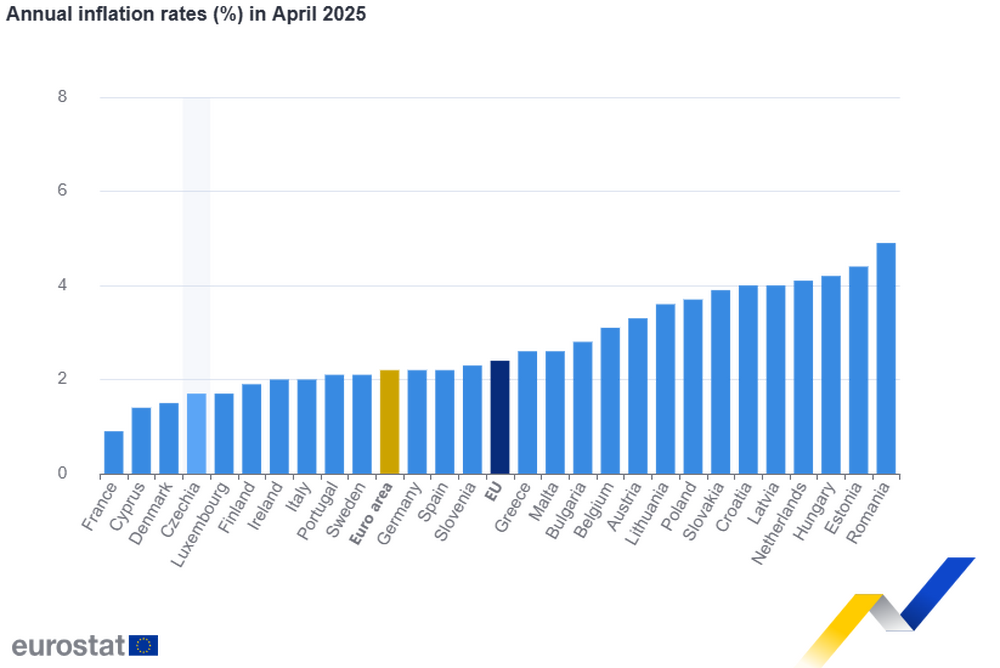site.btaEuropean Commission Forecasts Decline in Bulgaria's Budget Deficit and Acceleration of Inflation in 2025


Bulgaria's gross domestic product (GDP) this year will slow its growth rate from 2.8% in 2024 to 2 percent and will reach 2.1% in 2026, indicated the European Commission's spring economic forecasts, received by BTA on Monday.
The slowdown in Bulgarian GDP growth is due to both internal and external factors. Household consumption in Bulgaria will grow more moderately due to their significant propensity to save and against the backdrop of temporarily higher inflation, the EC said.
Its assessment indicates that inflation in Bulgaria has slowed to 2.6% in 2024. The European Commission forecasts that inflation in Bulgaria, harmonized with European Union standards, will accelerate to 3.6% in 2025 and slow down again, to 1.8% in 2026.
The increase in consumer prices in Bulgaria in early 2025 comes against the backdrop of the restoration of the 20% value-added tax (VAT) rate for bread and restaurants, higher excise duties on tobacco products, higher prices for electricity, natural gas, a number of other utilities, as well as food products, according to the European Commission's analysis.
Inflation in Bulgaria in April was 3.5% on an annual basis (compared to the same month in 2024), measured by the consumer price index (CPI), according to official data from the National Statistical Institute (NSI), presented last week.
On a monthly basis (compared to March 2025), inflation in Bulgaria in April was negative (minus 0.8%).
Measured with the Harmonized Index of Consumer Prices (HICP), annual inflation in this country in April reached 2.8%, and monthly inflation was negative - minus 1.2%, show NSI data.
The European Commission forecast that Bulgaria's consolidated state budget deficit for 2025 will decrease from 3% of the country's GDP in 2024 to 2.8% in 2025 and remain unchanged in 2026 (2.8%).
Bulgaria's public debt is expected to increase to 25.1% of its gross domestic product in 2025 and to 27.1% in 2026.
At the end of April, the National Statistical Institute said that Bulgaria's debt for 2024 amounted to BGN 48.846 billion, or 24.1% of GDP.
The European Commission has lowered its forecast for Bulgaria's exports amid subdued external demand and increased competition in international markets. It predicts that private investment in the country will decline, while public investment will be supported by increased absorption of EU funds.
Regarding the Bulgarian labour market, the EC indicated that it remains stable, with an unemployment rate of 4.2% in 2024. Unemployment is expected to decrease to 4% in 2025 and to 3.8% in 2026.
The European Commission expects continued moderate wage growth in the private sector in Bulgaria, combined with partial job cuts related to the worsening economic environment and the need to maintain competitiveness of companies. Public sector wages are expected to increase in 2025 amid stable hiring.
/RY/
news.modal.header
news.modal.text